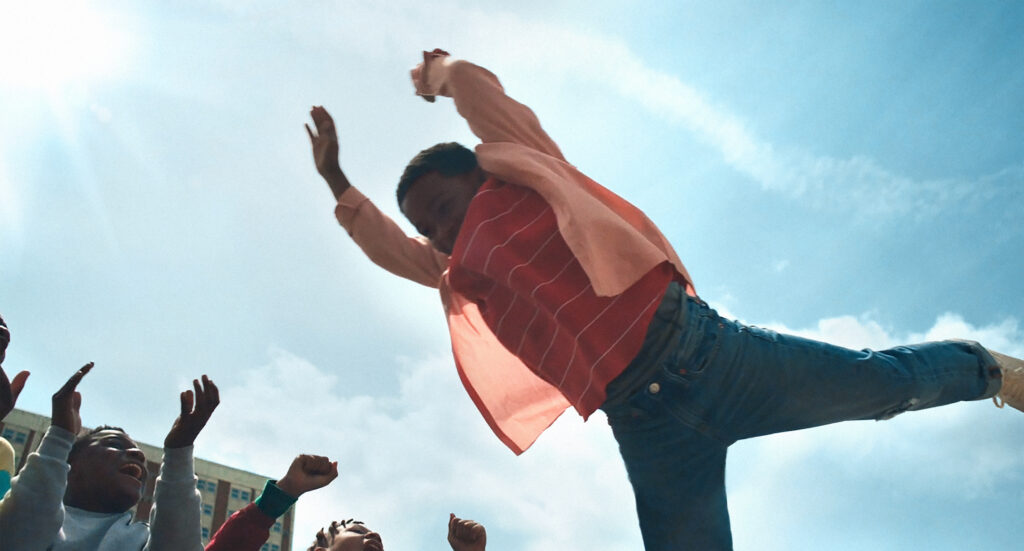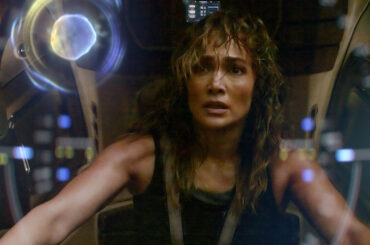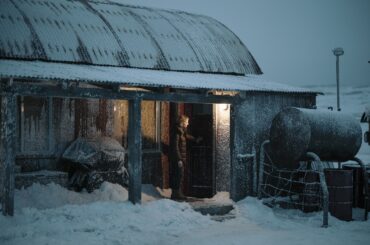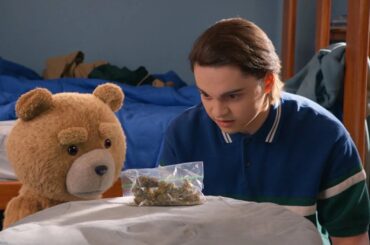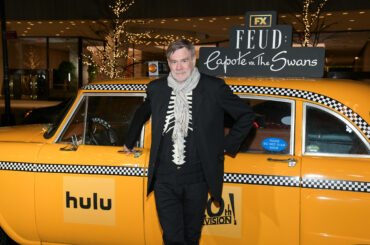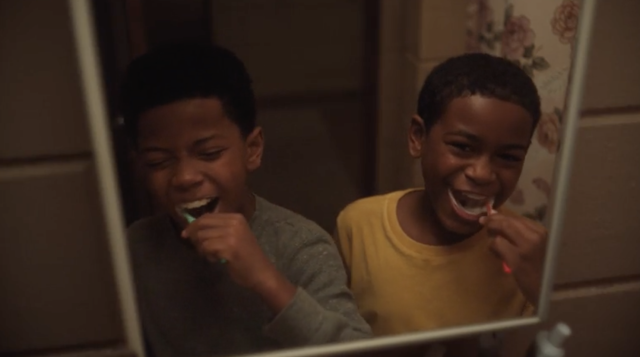
We Grown Now opened to rave reviews with solid word of mouth this past weekend. It is a story that takes place in 1992 Chicago, as Michael Jordan solidifies a legacy, a story of two young legends in their own right begins. Best friends Malik and Eric navigate the joys and hardships of growing up in Cabrini-Green.
What follows on screen is a bittersweet love letter to the complex joys and frustrations of childhood. Directed by Minhal Baig, the film has a classic feel with several long shots and subtle silences and you immerse yourself in their world of low angles at a kid’s height.
With DP, Pat Scola the film has the feeling of lost innocence with a beautiful original score by Jay Wadley keeps it flowing wistfully and it is all tied together by the expert skills of Multiple Emmy Award Winner, Stephanie Filo. After its premiere at TIFF in 2023 it was awarded with the Changemaker award at the festival then it won the audience award at The Chicago Film Festival and was nominated for Best Editing, Best Cinematography, and Best Feature at the Independent Spirit Awards.
The history-making Filo, who is involved with organizations such as End Ebola Now Campaign and Girl Empowerment Sierra Leone, recently spoke with Immersive about her work on the film.
[Note: The following conversation is edited for clarity]
How did you get involved with the project?
Minhal Baig and I had liked each other’s past work and so had followed each other on social media prior to this. When she was prepping for this movie, she wanted me to read the script, so I read it and just fell in love with the story. I cried while reading it, and I thought I just had to try to be involved in this movie however I could.
Tell us about your workflow on this project.
They filmed in Chicago and we posted in New York, so I was getting dailies and just cutting as they were filming. There were a couple of weeks down before the final day of shooting, which I think worked in our favor because it was a chance for Minhal and I to work a little bit through the story and decide if there were any pickups we might need. I was caught up to the camera for most of the shoot. I would send Minhal each day a quick assembly of the scenes just so she could make sure that she had what she needed or wanted to have shot.

What was your impression of the film’s look and feel? How’d you want to emphasize it?
Pat Scola is just such an incredible cinematographer, it was a dream to work with his footage. He shot from a lot of low angles and interesting movements just to keep us within our kids’ perspectives, as well as some more traditional coverage to play with just in case. There are a million different versions of how we could have edited this movie. But I think ultimately all of us wanted to make sure that we’re only living in the kids’ minds, and that involves staying in those low angles. I think all of us collectively wanted to make sure that it didn’t feel like just a traditionally cut or traditionally shot piece because it’s also not a traditionally told story.
Tell us about the human element of this story set in the projects. What was it about these characters and this setting that really spoke to you?
So many times when we hear stories about places like Cabrini- Green, it’s a gritty story or it only focuses on crime elements. There were thousands of people and families in Cabrini-Green and you don’t hear about them, and it’s important to highlight the real people who lived in a place to tell a story authentically. That’s our whole thesis for the film - a place is the people. For kids living in Cabrini-Green, they were just kids growing up.

Were there any coming-of-age films that were inspirations for you making this?
I think a movie that we all love so much and had so many discussions about was Crooklyn. But a lot of our editing process on this film was also about our own lived experiences. We would just sit and talk about our childhoods and how we perceived the world at that age. I’m like, “what music did I listen to, what programming did I watch, how did I speak to my parents? How did I view the world around me?” I think we had a lot of movies that inspired us, but I think also a lot of it was just kind of thinking through our own experience and just seeing how that applies universally to kids.
Can you talk a little bit about working with the original score?
Jay Wadley, our composer is amazing. Editing with temp score is challenging because it’s never the exact tone you’re after, and Jay just kind of took our temp ideas and created an elevated and magical score. I think he’s so brilliant, and he found a way to highlight the playful child-like elements, as well as bringing in strings of sadness or tension within his score. So I thought he did just a great job of balancing that out, especially the way that kids might feel in the moment.
What were some of the challenges of this project?
Because it’s a Slice of Life film, I think we almost approached it in the way that you would cut a verité documentary, because we would have our story cards on the wall, and every morning we would kind of come in, look at the story cards, and we’re like, “is there a way we can shift this around that might be impactful, or what would happen if certain scenes played differently in tone, or what would happen if we just had a birds’ eye view on something?” So we tried so many different structures and styles of the movie just to see all of the ways to highlight maybe what the kids are experiencing. So it wasn’t a challenge so much, but more of like an interesting exercise where every morning we’re kind of figuring out our kids’ headspaces, figuring out where all the cards would land and I’m happy with where they all landed.

What has the reaction to the film been like for you?
I think now that it’s out in the world, the positive response has been nice to see because I think for me it has always felt like it is such a universal and special story.
Can you talk about working with Participant, which just shut down recently?
I love everything that Participant stood for and stands for. I think as also someone who’s very, very passionate about social impact and activism, it was just really exciting to work with people who are so passionate about telling these authentic stories that maybe wouldn’t be told otherwise. I was very devastated to hear the news, and just really hope to see more companies embracing the importance of socially conscious storytelling.
How’s balancing film and TV at this point in your career?
I’ve done both over my career. They’re different in that their workflows are different, but ultimately the end goal is the same. If you’re on a TV series, you’re usually working with other editors and you’re talking through what the story is and what those beats are in different episodes or sections. Like, “oh, this character later on needs to do this thing so that arc needs to start here in the edit” and you’ll talk and work through that with the other editors. Whereas on a movie, it’s really like you and your director massaging the project together for the duration of it, so it’s just a different type of collaboration, I guess. And I like both. I think that’s why I bounce between both.
What are you working on now?
I have a project that I’m working on now with Disney that will be out soon!
We Grown Now is now playing in theaters.


